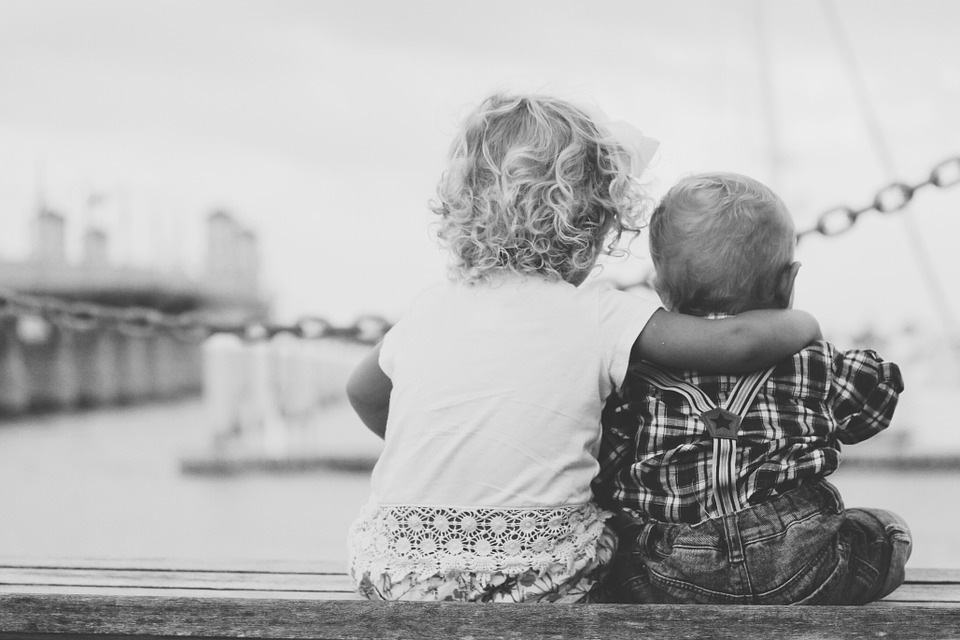There are a lot of books, articles, videos and blogs on how to be a parent, “How to be a good parents (with pictures)”, “50 Easy Ways To Be A Good Parent”, “Nine Steps to More Effective Parenting”, etc.
However, all that information begs another, far more important question: how to be a kid.
To be an expert in most things, you have to go to school, study hard, pass a test and get a license. To drive, you have to pass a driving test to get a license. To get married, you don’t have to go to school or pass a test, but you have to get a license.
To be a parent you just have to know how to play a certain three-letter activity with a somewhat unpredictable outcome.
Which is kind of confusing for the kids. They arrive with a “What the…?!”
And it gets even more confusing from then on.
As a kid you control nothing in your life. You only get fed when the big woman with the comfy chest decides it’s time. Yucky paper things get wrapped around your middle, often by the big guy with a big face that makes really big noises when the paper things slip.
No one speaks your language. They can only differentiate between your crying and laughing (how stupid is that?!).
As you get older, you learn their language (they never learn yours) and then they send you to a place called “school” where you learn boring stuff, but nothing about being a kid.
Later, it gets more confusing. When some of your friends have their own comfy chests, you’re told you can’t even look at them, much less touch them. And they just giggle and point at your funny-thing that they don’t have. Or vice versa.
And maybe, during all that confusion, the two people who seem to know everything and keep you safe start yelling a lot and it’s scary. And one day one of them moves away and you don’t know why, but you’re pretty sure it’s your fault.
Or maybe they just take you somewhere and leave you. And strangers give you food and a place to sleep, but the food is only sometimes and the sleep is no longer easy because its a scary place and now you know it’s your fault.
And through all of it, no one explains what happened or why. And even if they do, they use words with too many parts, like or “alcoholism” or “inappropriate”. Nothing about how to be a kid, nothing at all.
Later, maybe you get kicked out of school because math and english and science and history aren’t nearly as cool as smoking and drinking and drugging and doing what you want instead of what you’re told to want.
And you have no idea why your life is in blurry pieces.
Or maybe you’re one of the really courageous ones and somehow, before it’s too late, you force yourself away from that path, you discover the damage that was done to you, you repair it to the extent you can, and save a life. Yours.
Or maybe you’re really, really lucky and life is confusing, but laughter and hugs also fill your day and none of the scary stuff happens and you don’t have to save a life.
Eventually you become an adult, get a job, marry a comfy-chested person or a funny-thing person and have a kid. So, finally, you get one of those books about kids – about the you who is long gone.
Pretty nutty, huh?
Kids have no responsibility or control over their lives. They’re completely vulnerable. They don’t know what’s going to happen to them until it happens. It’s only when they’re no longer kids, when they become adults that they control their own lives. They decide to learn about things like raising kids, having healthy relationships, about children of alcoholics or the impact of divorce, or foster care, and more. All the stuff its too late to do much about.
We are schooled on how to go to the moon, win wars, fight disease, invent new things, make money. But, on being a kid? Nothing.
Imagine if, along with other subjects in school, there were as many books or courses – not on raising a kid, but on being a kid – as there are on parenting: on dealing with parents and other kids, on the physical and emotional stages of growing from childhood to adulthood, taught in kids terms.
Imagine a kid understanding and learning how to be a kid – while it is happening – instead of later, when it’s too late to get it right.
